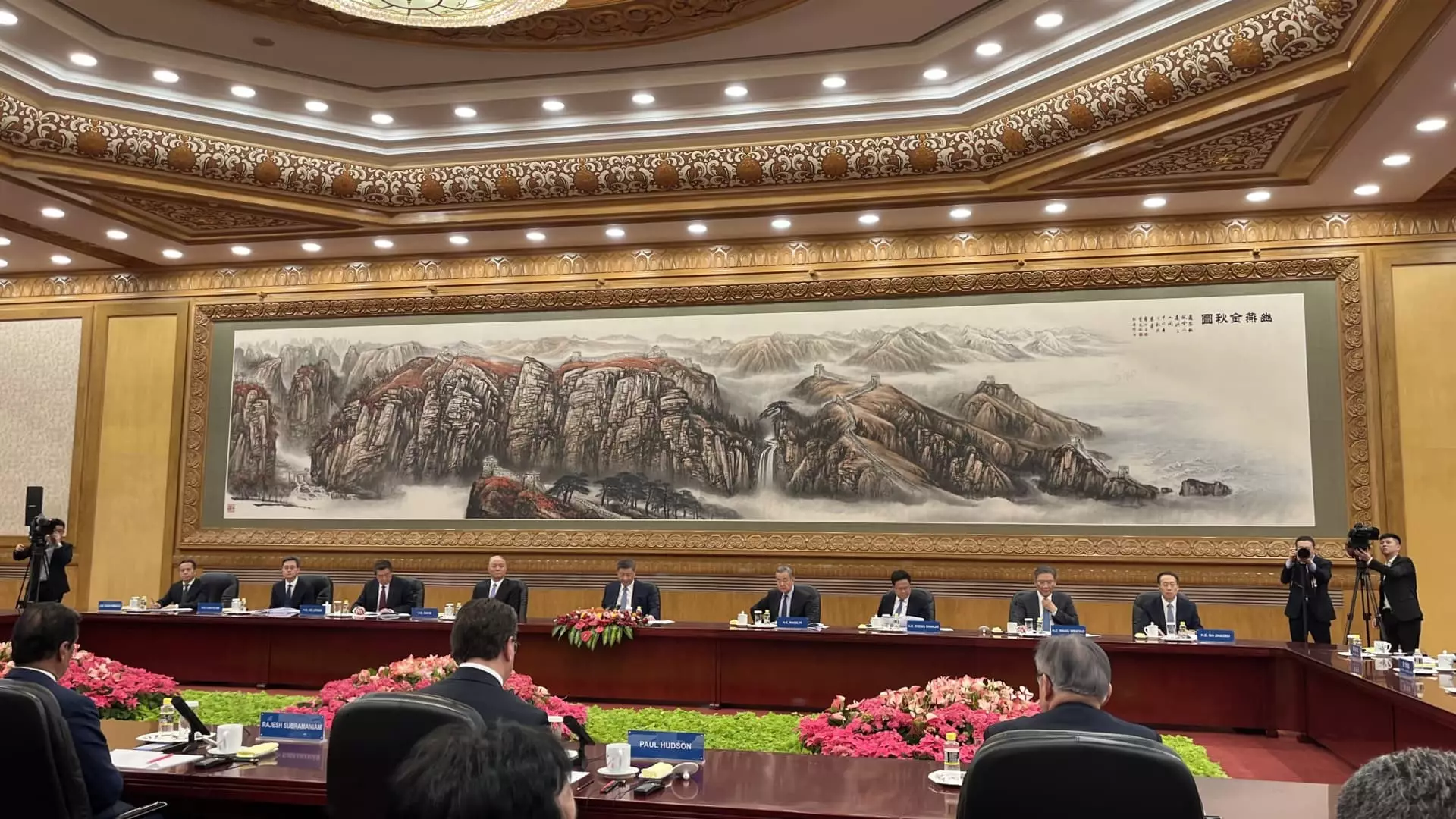In a strategic move reflecting the evolving dynamics of international trade, President Xi Jinping recently convened a gathering of prominent global executives in Beijing, urging them to reconsider and reaffirm their investment commitments in China. Given the backdrop of intensifying trade tensions with the United States, Xi’s dialogue underscores a critical pivot in China’s approach to foreign investment. The message is not just about opportunity but a clarion call for multinational corporations to contribute to preserving a stable global order, an aspect predominantly overlooked in the current economic climate.
Xi emphasized that investing in China translates to investing in the future, firmly stating that the nation remains a bastion of safety and stability for foreign businesses. This assertion is particularly crucial as companies navigate the treacherous waters of geopolitical conflict. By framing this narrative, Xi is not merely appealing for investment; he is enticing these industrial giants to become stakeholders in a robust economic framework that is resilient against the threats of isolationism and de-coupling from international trade networks.
Trade Tensions and Their Implications
The U.S.-China trade tensions, highlighted by President Trump’s imposition of steep tariffs and an export blacklist targeting numerous Chinese tech firms, loom large over Xi’s outreach. The nuance of Xi’s message, however, suggests that he perceives collaboration as the key to mitigating conflict. He asserted the necessity of negotiations to reach resolutions that stabilize global supply chains, countering the detrimental effects of a trade war that neither side stands to win.
Moreover, Xi’s call for foreign companies to embrace their role in corporate responsibility reflects a deeper recognition of the geopolitical chess game at play. The rhetoric around “upholding global order” is an acknowledgment that businesses are not just economic entities; they are also pivotal actors in the diplomatic arena. It is a realization that in times of economic strife, the stakes are higher, and the repercussions of disinvestment could resonate beyond mere market fluctuations.
The Role of High-Profile Executives
The meeting included luminaries from the business world, such as Ray Dalio, Bill Winters, and Steve Schwarzman. The choice of attendees speaks volumes about the companies that Xi is courting. These executives already have a vested interest in the Chinese market and are likely aware of the intricacies involved in deploying capital within its borders. Their engagement could signal a pivotal moment for China’s economic strategy, especially if they choose to amplify their investments further, thereby dispelling fears of a collapsing partnership due to external pressures.
The fact that seven foreign executives were given the platform to speak before Xi illustrates the importance of these business leaders in shaping dialogue. According to Stephen Orlins, the individualized feedback Xi provided demonstrates a familiarity with the trajectory of these organizations, highlighting a calculated effort on China’s part to reassure and entice fundamental players in the global economic landscape.
Navigating Uncertainty
China’s outreach is set against a backdrop of complex economic relationships. While the U.S. continues to hold the title of Beijing’s largest single-country trading partner, China’s efforts to strengthen trade with Southeast Asia and the European Union indicate a strategic diversification aimed at reducing dependency. This diversification suggests that China is preparing for a future where alternate trading partners might buffer against ongoing tensions with the U.S.
The absence of high-profile figures like Elon Musk from crucial meetings raises questions about the future of American businesses in China. As these tensions escalate, the question of whether executives will continue to prioritize their investments in China or withdraw due to political pressures remains largely unanswered.
In a global economy that appears increasingly fractious, Xi’s insistence on cooperation and mutual benefit carries profound implications. It is a reminder that as countries grapple with nationalistic impulses, the interconnectedness of global trade requires a renewed commitment to dialogue and collaboration. In this light, China’s approach presents both challenges and opportunities. Engaging in this landscape necessitates not only financial capital but also political acumen, as companies weigh their long-term strategies against the backdrop of a shifting geopolitical environment.

